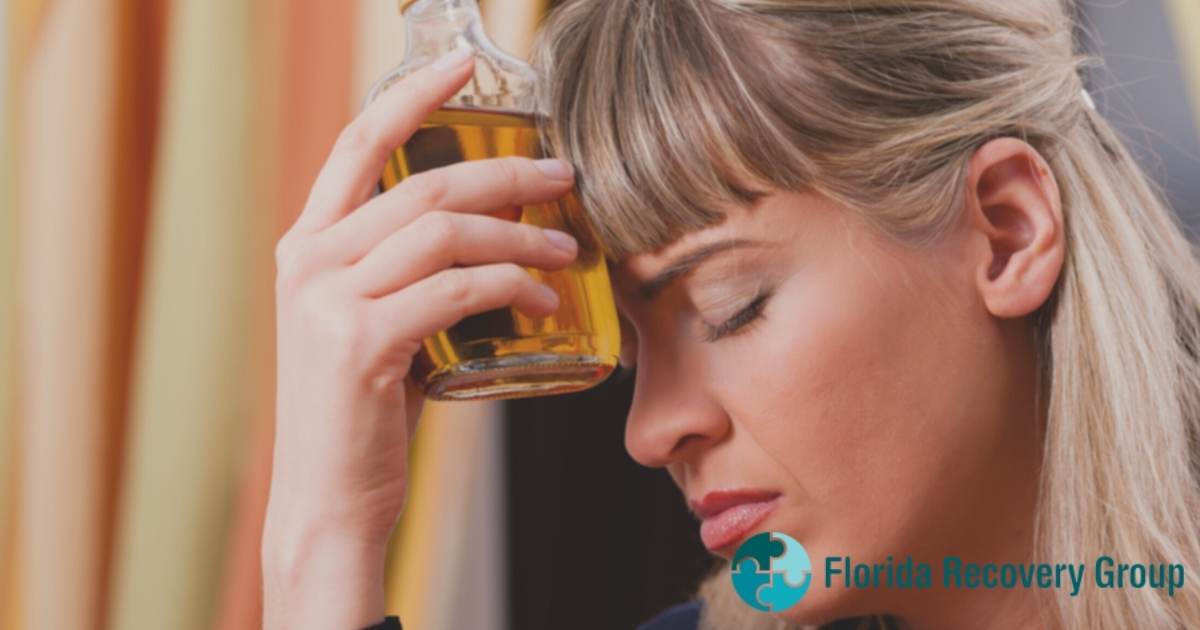
25 Jan 5 Signs You Need Alcohol Rehab in Delray Beach
When it comes to alcoholism, it is often difficult to decipher how severe your problem is. It is common for individuals dealing with alcohol abuse to be in complete denial that they have a problem at all. However, if the alcohol abuse is causing negative effects in your life, it’s time to come to terms with the fact that you may suffer from alcoholism. After accepting your alcoholism, the next step is to attend professional alcohol rehab in Delray Beach.
Understanding the Severity of Your Alcoholism
If your life, career, and relationships have been negatively impacted by your alcohol use, you more than likely suffer from an addiction to alcohol. However, alcoholism is diagnosed on a spectrum. There are mild, moderate, and severe levels of alcoholism. Each level of alcoholism requires professional treatment.
The criteria for an alcohol use disorder diagnosis include:[1]
- Lack of control
- Desiring to quit but being unable
- Spending a lot of time trying to obtain the substance
- Cravings
- Lack of responsibility
- Issues with relationships
- Loss of interest
- Dangerous use
- Worsening situations
- Tolerance
- Withdrawal
The severity of your alcoholism is determined by how many criteria you identify with. If you only meet 2 or 3, it is likely that your alcoholism is mild. If you meet 5, you most likely suffer from moderate alcoholism. However, if you identify with 6 or more criteria, you suffer from severe alcoholism. It is important to note that if you meet any number of alcoholism criteria, you should attend alcohol rehab in Delray Beach as soon as possible.
5 Signs That Indicate You Need Alcohol Rehab
When alcoholism develops gradually over time, it can be difficult to spot. With that being said, it can be helpful to see the signs of alcoholism in black and white. If you drink regularly, the following are 5 signs that you need professional alcohol rehab in Delray Beach.
1. Developing Tolerance
One of the most common signs of alcoholism is the development of tolerance. Alcohol tolerance is characterized by an individual needing to drink more amounts of alcohol to experience the same effect as before. In other words, their body has adjusted to a certain amount of alcohol and become accustomed to it. This causes the individual to need more and more each time they drink.
2. Experiencing Symptoms of Alcohol Withdrawal
Symptoms of alcohol withdrawal are another common sign of alcohol addiction. Withdrawal occurs when an individual suddenly quits drinking after doing so consistently for a long period of time. Symptoms of alcohol withdrawal typically begin within eight hours after the last drink.[2]
Common signs of alcohol withdrawal include:
- Sweating
- Nausea and vomiting
- Shaking and tremors
- Headache
- Nightmares and insomnia
- Anxiety
- Alcohol-induced depression
- Mental cloudiness and fatigue
- Irritability
- Mood swings
- Dilated pupils
- Loss of appetite
- Rapid heart rate
If you or a loved one have experienced the symptoms of alcohol withdrawal, you are suffering from an addiction to alcohol that requires professional treatment. When you go to alcohol detox, medical personnel will provide you with medications to soothe your symptoms of withdrawal, making this process much easier.
3. Being Unable to Quit Drinking
If you are addicted to alcohol, you may be avoiding quitting out of fear of the symptoms of withdrawal. Unfortunately, this is a common reason for alcoholics to avoid treatment altogether. However, by attending an alcohol rehab program in Delray Beach, you will be medically and psychologically treated to soothe the symptoms of withdrawal. While quitting alcohol is scary, attending professional treatment makes it much easier.
4. Justifying Your Alcohol Use
It is common for individuals who struggle with alcohol use disorder to be in denial about their dependence. Oftentimes, this causes them to find ways to justify their alcohol use to themselves and their loved ones. For example, an alcoholic may tell their loved ones that they deserve to drink as a means of celebration for something. On the other hand, an individual may use chronic pain, stress, or depression as an excuse to drink when they want to self-medicate their symptoms.
If you find yourself or a loved one coming up with justifications for their alcohol use, it is likely that they are suffering from alcoholism and require professional treatment.
5. Physical Health Complications
Alcoholism has been connected with the development of countless health conditions and is the third leading preventable cause of death in the United States.[3]
According to research, alcohol has been contributed to the following physical health conditions:[3]
- In 2018, out of 83,517 liver disease deaths that occurred in the U.S., 42.8% involved alcohol.
- Of all the cirrhosis deaths that occurred in 2013, 47.9% were related to alcohol.
- Alcohol use is known to increase the risk for a wide range of cancers, including cancer of the mouth, liver, and breast.
If you or a loved one have developed new physical health conditions or have experienced the worsening of pre-existing conditions, it is time to seek help for your alcohol abuse.
Get Started With Alcohol Rehab in Delray Beach Today
Alcoholism is a terrible disease that is known to negatively impact each area of an individual’s life. Additionally, alcohol use disorder is characterized by an individual attempting to hide or conceal their alcohol abuse, causing this disease to be difficult to identify. If you or a loved one have displayed the signs of alcoholism, it is imperative that you seek professional help before your disease continues to progress. Contact Florida Recovery Group today to get started at an alcohol treatment program in Delray Beach.
References:





